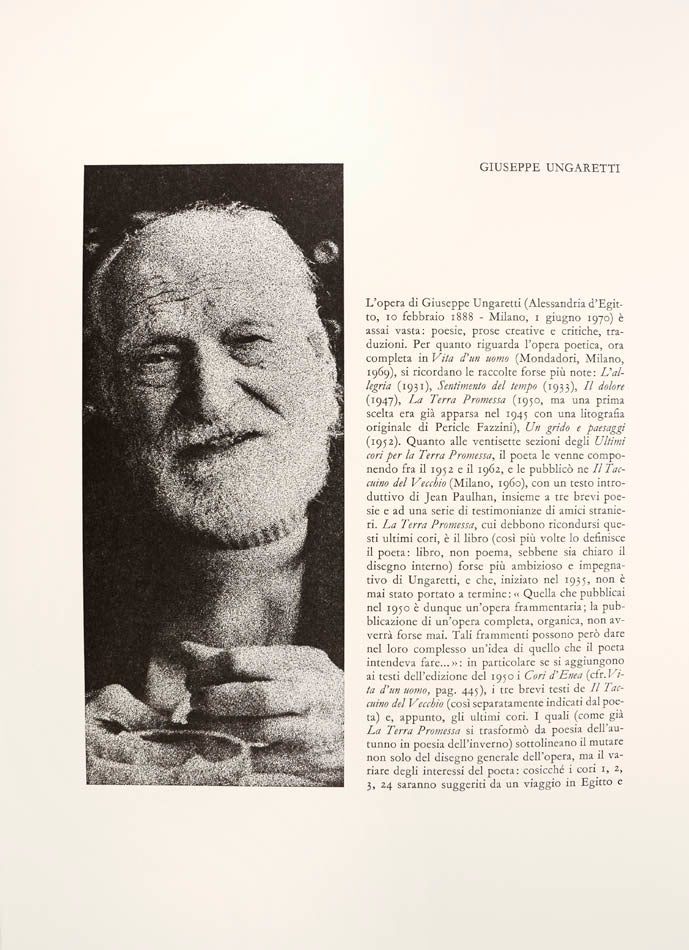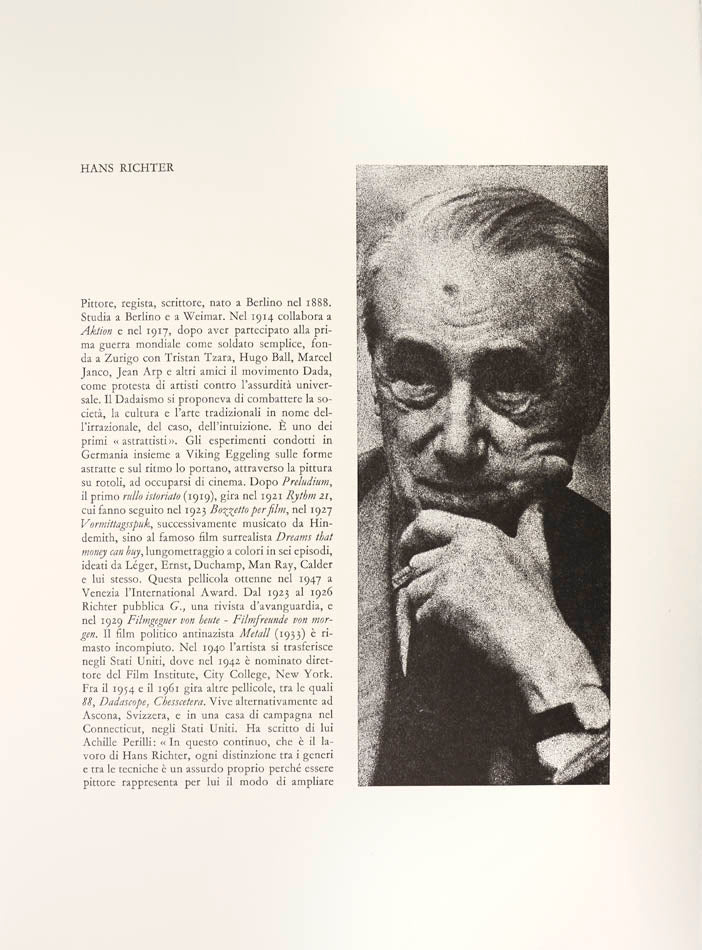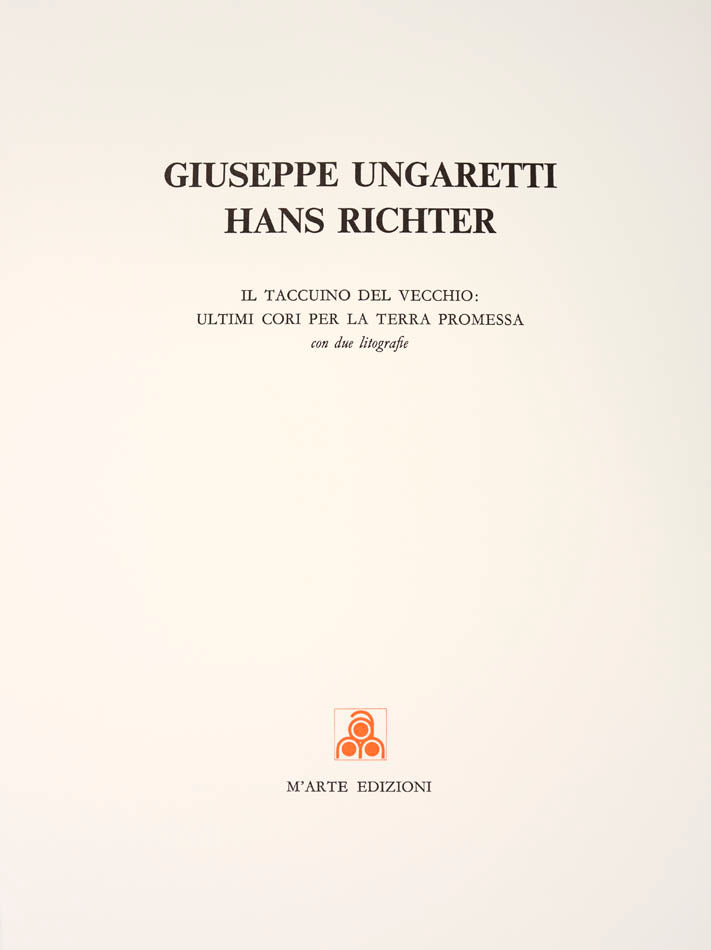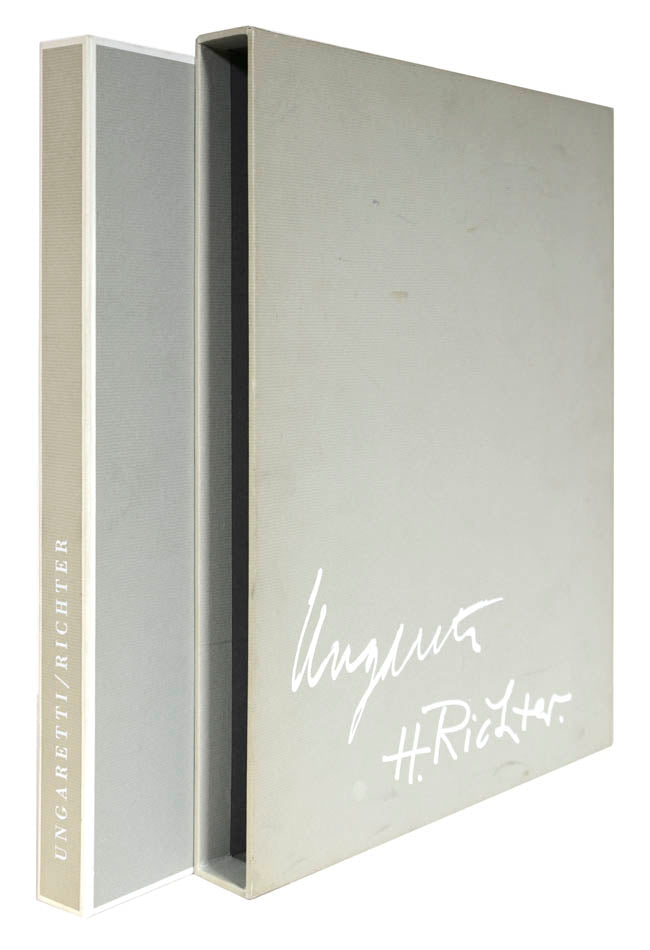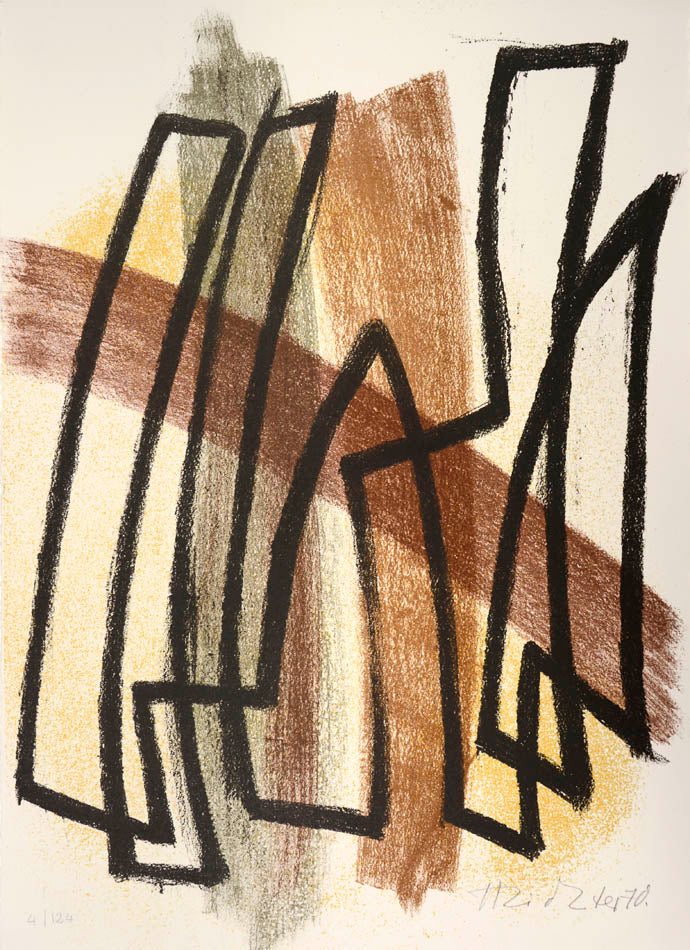UNGARETTI, Giuseppe; Hans Richter (artist).
Il Taccuino del Vecchio:
Il Taccuino del Vecchio:
ultimi cori per la terra promessa. Con due litografie.
Stock Code 88282
Milan, M'Arte Edizioni, 1971
Guiseppe Ungaretti (1888 -1970) himself described poetry as the ability to express oneself 'with absolute candor, as if it were the first day of creation.' In this quest for purity and attempt to restore to words their original virginity, Ungaretti was following the paths traced out by the French symbolists, Rimbaud, Mallarme, and Apollinaire. Like them, he believed that a poem should suggest rather than describe, and that words have an evocative content beyond their everyday significance. However, when Ungaretti had done his essential work of purification, a change occurred in his diction. 'The lean syntax grew complex, the tenuous surface opaque, and the heart of the matter crowded, contorted with sorrows and perplexity.'
Hans Richter (1888 - 1976) experienced the twentieth century's political nightmares first-hand, from combat in World War I in which he was severely wounded, to persecution by the Nazis and artistic censure in the Soviet Union. He never saw his art as separate from the conflicts and sufferings of humanity, but instead devoted his art to the creation of a better society.
Number 6 of a limited edition of 124, folio (40 x 30 cm), 48 pp., unnumbered, with 2 original colour lithographs by Hans Richter, numbered and signed by the artist (loose as issued), text in parallel Italian and German, reproduction of the original manuscript of the poem, in fine condition, publisher's printed grey paper wrapper, loosely held within grey paper covered folder, housed in a matching slip-case, a little marked and dust-soiled.
Couldn't load pickup availability
Provenance
Provenance
Delivery
Delivery
We offer secure and express delivery on all local and international orders of rare books, maps and prints placed through this website.
About us
About us
Shapero Rare Books is an internationally renowned dealer in antiquarian & rare books and works on paper.
Our Bookshop and Gallery can be found in the heart of Mayfair at 94 New Bond Street, where most of our stock is available to view and on public display.
We exhibit at major international art fairs, including TEFAF (Maastricht and New York), Frieze Masters, Art Miami and Masterpiece London, as well as antiquarian & rare book fairs including New York, Paris, London, Los Angeles, San Francisco and Hong Kong.
Ask us a question
Ask us a question

